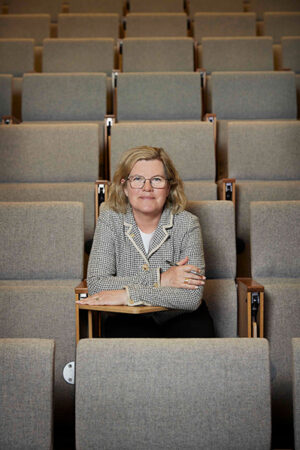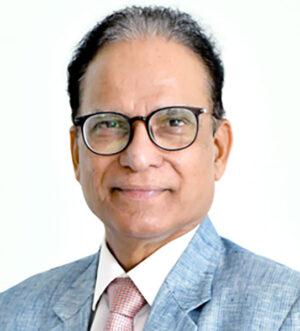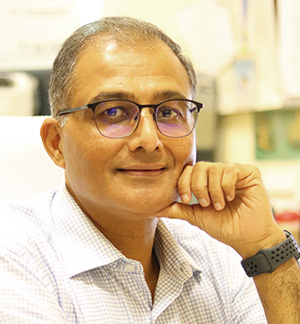Keynotes
Prof. Pascal Le Masson

Design theory for transition: supporting creative preservation and design-oriented responsability
Abstract of the talk:
Designing for transition requires both breakthrough innovation and preservation – preserve natural resources, biodiversity, energy, ways of life,… Design theory for transition enlightens this surprising logic of creative preservation, ie creativity for better preservation and preservation for improved creativity. We will first remind of historical cases of design for transition. We then show how creative preservation can be addressed by recent advances in design theory, in particular C-K/topos. We illustrate with contemporary implementations of related design methods. In conclusion we show how the newly created Bauhaus for Transitions at Mines Paris-PSL intend to contribute to research and education on managing creative preservation for transitions.
Brief Bio:
Pascal Le Masson is Professor at Mines Paris– PSL Research University, Chair of Bauhaus for Transitions. He is a member of the French Academy of Technology. With his colleagues of the Bauhaus for Transitions, a research and education chair supported by more than twenty industrial partners, he works on generative processes, design-oriented management and the design for transitions.
He co-chairs (with Eswaran Subrahmanian, Carnegie Mellon Univ.) the “Design Theory” Special Interest group of the Design Society. He has published, with Benoit Weil and Armand Hatchuel, “Strategic Management of Innovation and Design” (Cambridge University Press, 2010) and “design theory” (Springer, 2017) and several papers in international top-level journals.
Prof. Sophie Isaksson Hallstedt

Sustainable Design in a Resource-Constrained Society
Abstract of the talk:
In this presentation new decision support tools that increase the ability to integrate and implement a strategic sustainability perspective will be presented, along with research results in sustainable product development. The room for opportunities for the manufacturing industry is declining due to globally limited material and energy resources. However, with new approaches in design, development towards a resilient and sustainable society is possible. One promising approach is to include a system perspective and a long-term strategic sustainability perspective in decision supports that should be applied in the early design phases. The presentation finalizes with some suggestions on new focus areas within Sustainable Design to achieve responsible design for a resilient and sustainable society.
Brief Bio:
Sophie I. Hallstedt is a Full Professor at Chalmers University of Technology. Her research focuses on developing and applying methods and decision support tools with a strategic sustainability perspective in the early phase of a product innovation process. The goal of her research is to support companies in developing sustainable and value-creating lifecycle solutions while considering ecological, social, and economic aspects. Her work has resulted in the development of innovative methods, models, and decision support tools that enable product development teams to: assess the maturity level of sustainability implementation, assess and evaluate the sustainability impact of various solutions, and to visualize progress in sustainability implementation.
Her ongoing research has a particular focus on: enhancing the ability of product development teams to assess, anticipate, evaluate, and improve the sustainability performance of their solutions; developing methodologies and new approaches to create sustainable and circular value-chain solutions; integrating sustainability in new technology development to identify and address sustainability challenges before these technologies are established; and, anticipating user behavior from a sustainability perspective when the product is handled in a circular manner.
Arun Jaura

Smart Design – Cornerstone of Sustainable Mobility
Abstract of the talk:
Automotive design is driven by customer expectations and strict regulations on fuel efficiency, safety, and sustainability. While specific subsystems can improve these areas, true sustainability spans the vehicle lifecycle—design, development, green manufacturing to responsible supply chains. OEM priorities like energy savings, recyclability, comfort, and safety have long advanced mobility materials. Today, innovations of these priorities are accelerated by AI, virtual reality, UI/UX, and connectivity, supporting sustainable design across land, air, and water. Efficiency remains crucial for consumers, who value connectivity, comfort, and diverse powertrain options. Generative design and AI tools are transforming product development and adaptability, enhancing speed to market and total cost of ownership.
Brief Bio:
Dr. Arun Jaura is a distinguished techno-commercial leader with over 35 years of global experience spanning power, new-age technologies, and mobility across vehicles from two-wheelers to off-road and aircraft. He specializes in artificial intelligence, V2X connectivity solutions, and XaaS (Everything as a Service) models. Recognized as a Technical Fellow of SAE International, author of several referred publications, and a holder of five patents, Dr. Jaura’s dedication to innovation earned him the Henry Ford Technology Award.
His leadership roles at prominent organizations—including Hero MotoCorp, Michelin, Eaton, Mahindra & Mahindra, Ford JLR, and DRDO—have advanced digital transformations and led to the successful launch of electric, hybrid, and hydrogen vehicles. Passionate about motorsports, he has championed teams to international recognition.
Beyond corporate leadership, Dr. Jaura has held positions in the Indo-French Chamber of Commerce and the European Advisory Committee for Sustainable Development. As a founding member of India’s National Mission for Electric Mobility, he played a pivotal role in the country’s EV evolution, contributing to sustainable mobility and clean energy as part of several major industry bodies, including the Society of Indian Automobile Manufacturers (SIAM), the Automotive Component Manufacturers Association of India (ACMA), and the Hydrogen Association of India.
Janet K. Allen

Designing FOR Service: Increasing the Disposable Income of Micro-Entrepreneurs in Rural India
Abstract of the talk:
Rural Indian communities at the bottom of the socio-economic pyramid face multiple challenges including low literacy, lack of capital and hopelessness. Designing for services such as electricity, water and education – rather than designing specific products – has the potential to transform these communities. Modern institutions of higher education have an important role to play in helping these rural communities boot-strap their way to self-reliance. In the context of
India’s NEP 2020 and the UN’s sustainable development goals, with the intent of initiating an conversation, I will describe a university-based designing for service ecosystem which can improve both economic viability and sustainability in rural India.
Brief Bio:
Janet K. Allen is Professor of Industrial and Systems Engineering and holds the John and MaryChair in the College of Engineering at the University of Oklahoma. Janet’s passion is to help others to create, archive, and transmit knowledge. She has an ongoing interest in simulation and modeling in support of design decision making particularly as applied to complex systems under uncertainty as well as a long-term interest in improving design pedagogy and especially educating graduate students. She has co-authored a textbook, five monographs and about 400 technical papers. Janet is a Fellow of the American Society of Mechanical Engineers.
Puneet Tandon

Influence of Generative AI in Transforming Design
Abstract of the talk:
GenAI is going to make an impact on the design industry. By automating routine tasks, enhancing creativity, personalizing user experiences, optimizing workflows, bridging skill gaps, and improving UX research, AI can empower designers to push the boundaries of innovation. By harnessing the power of GenAI, new levels of
creativity and efficiency can be unlocked, paving the way for a more inclusive, accessible, innovative and dynamic future in design. Despite its numerous advantages, integrating GenAI in design presents numerous challenges. Addressing these challenges is crucial. Designers and industries must work together to develop ethical guidelines that promote fairness, transparency, and accountability.
Brief Bio:
Puneet Tandon is currently engaged as Dean, Research, Sponsored Projects & Consultancy at IITDM, Jabalpur. He boasts an extensive career as an educator and researcher spanning over three decades during which he has worked at IIT Kanpur and REC Kurukshetra before working at IITDM Jabalpur and has held many administrative positions through this course. Along with an M.Tech. Degree from IIT Kanpur, a Post Graduate Diploma in Management and a PhD in Mechanical Engineering, Mr. Tandon also carries many accolades attached to his work in the field of product design and engineering including twice being chosen for the ‘Marquis Who’s who’ and several of his papers fetching awards. His areas of specialization include Geometric Modeling, Hybrid Manufacturing, Additive Manufacturing & Product Design.
Amarendra Kumar Das

Design for the Society: Is it just design or more.
Abstract of the talk:
Designing for societal needs in Indian context is very diverse. Due to diversity, a single design in India cannot be a universal design to benefit the entire country. Design alone is not good enough; in addition to the users’ need, designer needs to consider many other factors to bring the design to people to benefit the society. Economic and financial viability are such factors. One can design a product as an economically viable and financially feasible one, but still it may not come into market to benefit the society. In this case, designer needs to strategize special arrangements for transfer of design to MSMEs, setting up manufacturing, distribution, procurement by the beneficiaries and effecting policy decisions where required.
Brief Bio:
Prof. Amarendra Kumar Das is a Professor and former Head of the Department of Design, IIT Guwahati, and also founder and Director of IIIT Senapati, Manipur. Prof. Das is a Ph.D. in Design (IIT Guwahati), M. Des from IIT Bombay, MBA from Gauhati University, and a B Tech in Textile Technology (Anna University, Chennai. He has a total experience of 36 years in different fields. A designer, Prof. Das has designed the Dipbahan tricycle rickshaw and its derivatives that have created a livelihood for more than 100,000 persons in the last 16 years, and also awarded Best Tricycle Rickshaw Design, by the Ministry of Urban Development, Govt. of India and Institute of Urban Transportation, India. Prof. Das has also facilitated many innovations to bring into commercial production thereby making these available to common people. Prof Das has guided more than 20 PhDs in the design domain and many are on the verge of completion and also published more than 200 papers. Prof. Das has also completed more than 50 projects and consultancies. He is a member/nominee of Govt. of India in various national committees and boards.
Built by Shantanab Das Copyright © 2025 Department of Design, Indian Institute of Technology Hyderabad. All rights reserved.




